Text and Photos by Henrylito D. Tacio
It all started in December 2019 in Wuhan, China. By January 22, 2020, the novel coronavirus was already reported in the Philippines. But what Filipinos thought to be another severe acute respiratory syndrome (SARS) – that it would dissipate in time – never happened. By March 1, 633 cases were already reported.
Because of this, President Rodrigo R. Duterte placed Luzon on lockdown on March 12. Airports were closed. Shopping malls likewise stopped doing business. Only very few offices were in operation.
Thereafter, the whole country was under enhanced community quarantine. Among the measures employed were checkpoints for checking the motivation for travel, banning public events, closure of commercial and retail businesses, and closure of schools and universities.
Unheard words like contract tracing, swab test, and food pass became the norm. Health protocols – hand washing, wearing face masks and face shields, and physical distancing – were imposed.
Even before the coronavirus disease 2019 (Covid-19) pandemic started, Atty. Edwaldo L. Legaspina already bought land in Lorega, a barangay of Kitaotao, Bukidnon. This was in December 2019.
Then the pandemic happened. He was concerned with the safety of his family. From Davao City, he brought his whole family to the newly-bought land.
In February 2020, he started developing his farm. “Initially, we just wanted to plant vegetables and strawberries,” he recalled. “But when Covid-19 struck, we decided to build a home where the kids can roam around, free from any fear of virus transmission.”
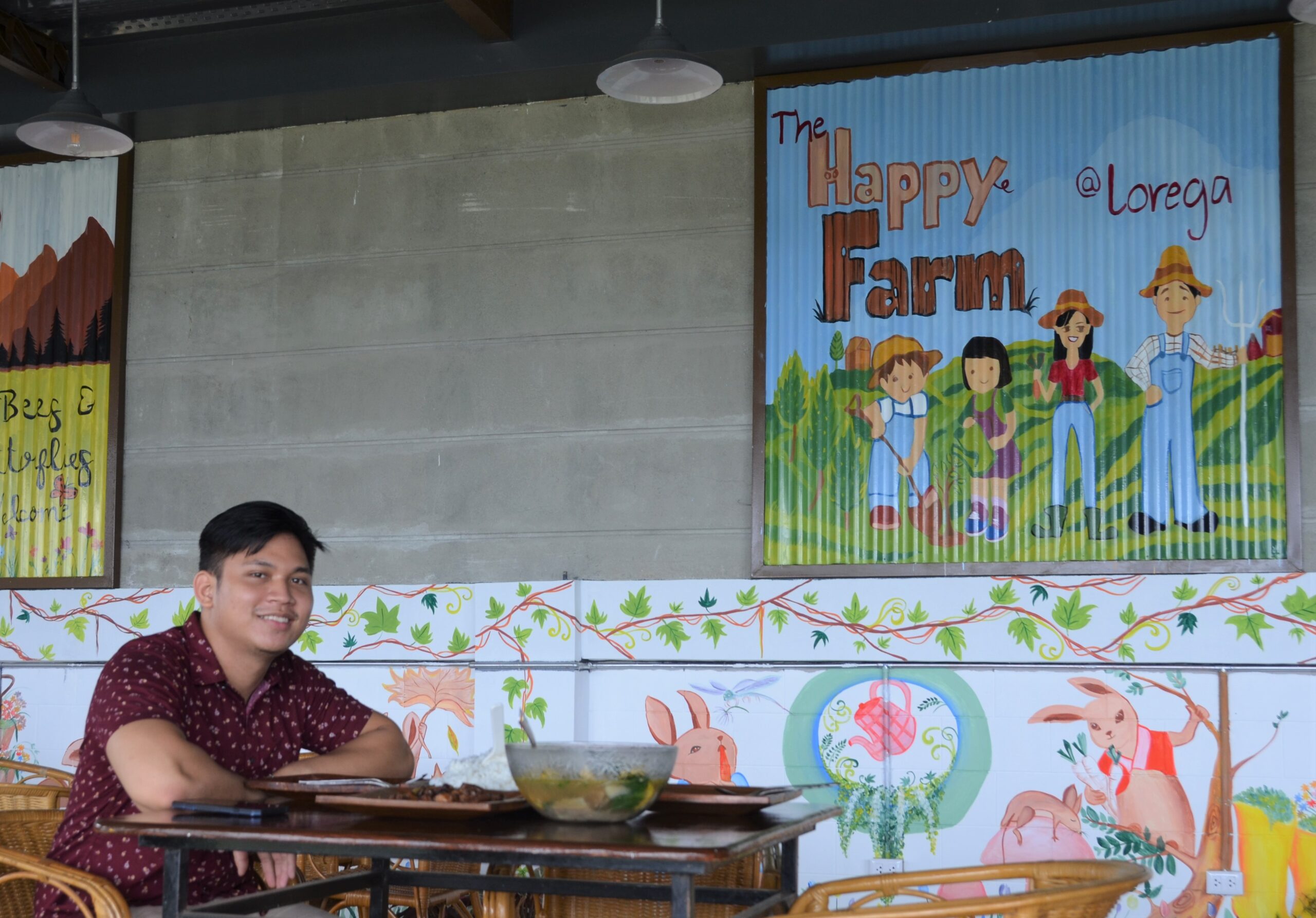
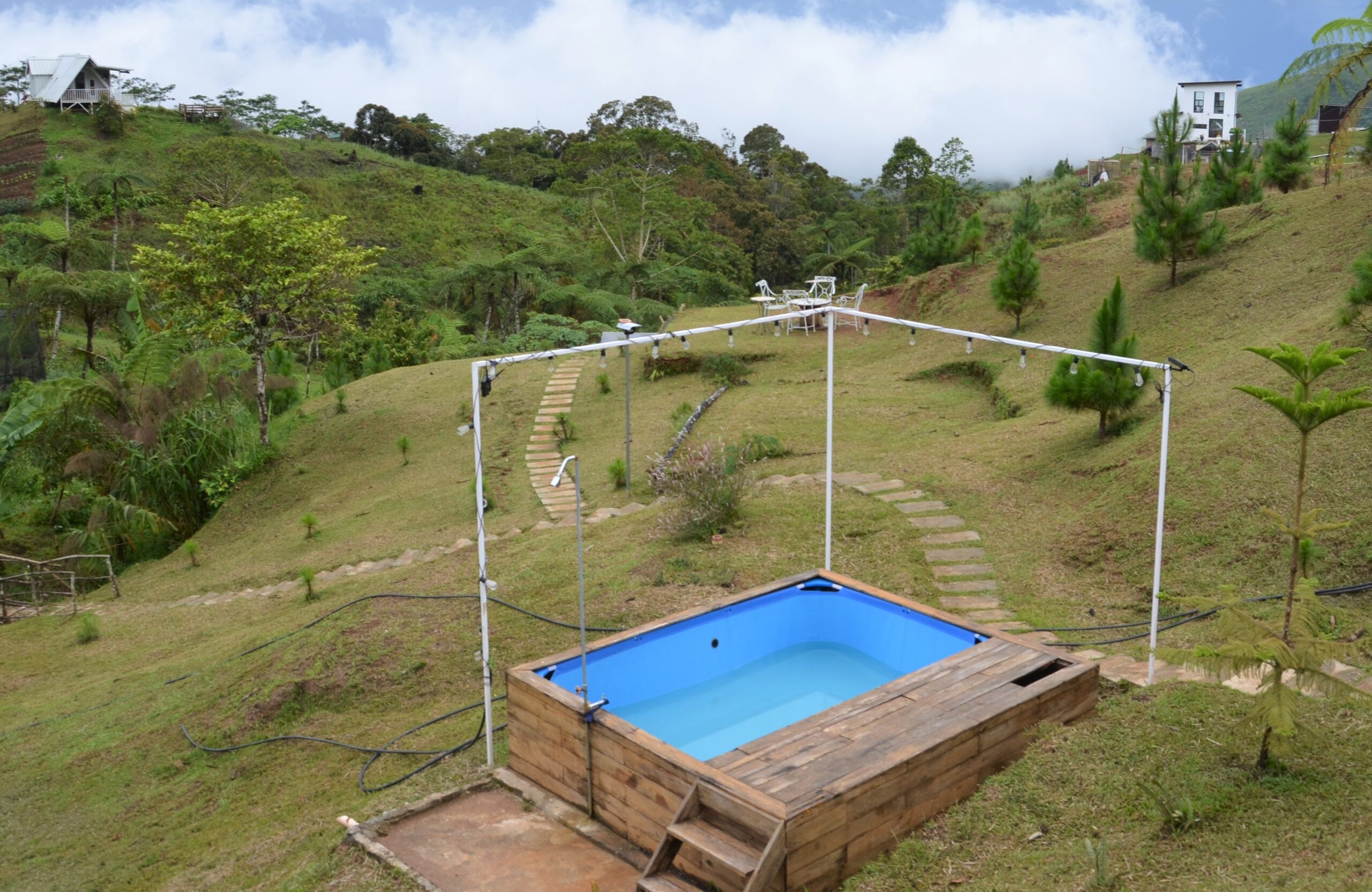
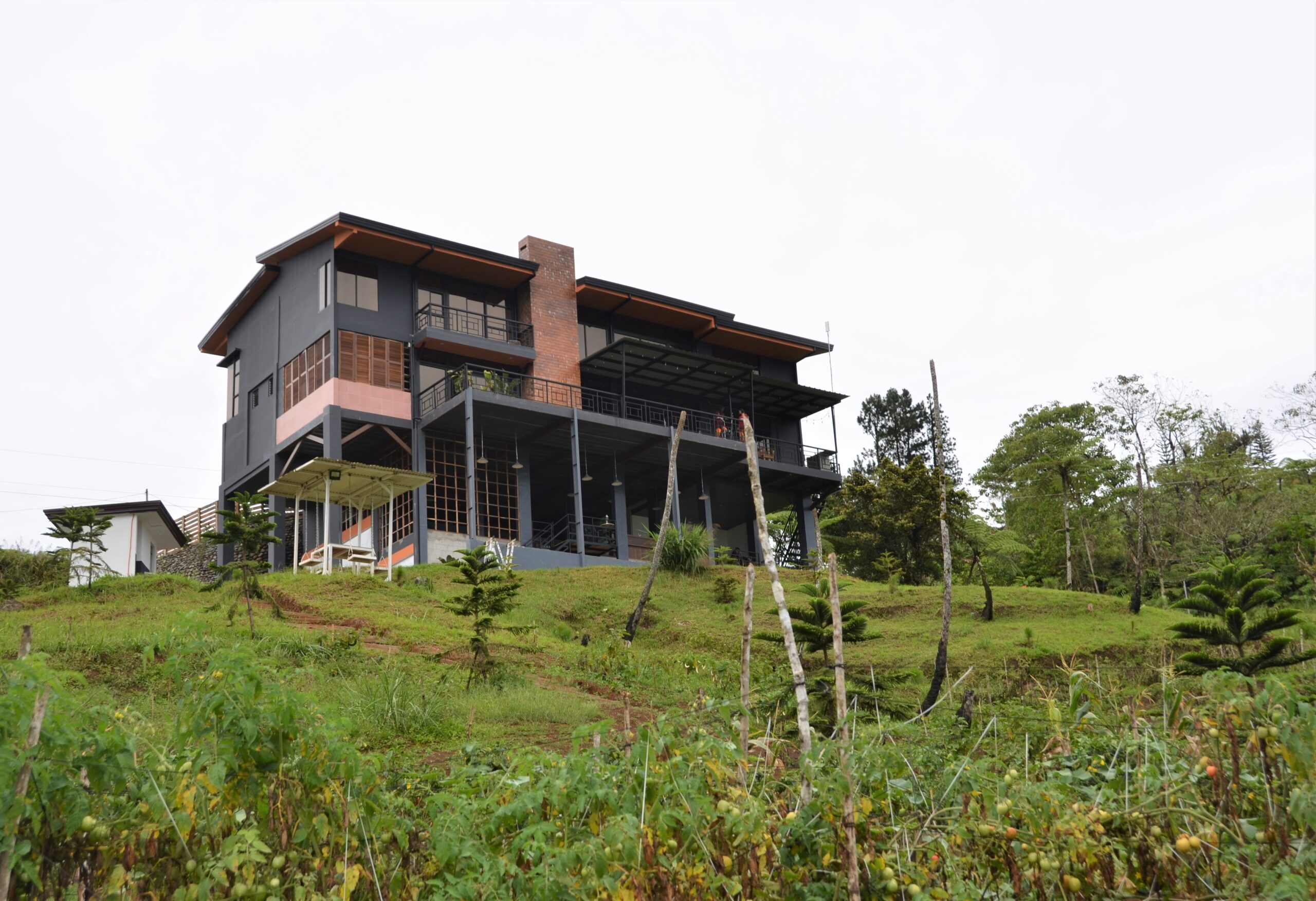
Aside from building a home for his family, he also started developing the farm. “Farming takes away your stress,” he says. “We also want our kids to engage so they may know the value in growing your own food.”
As the farm was being developed, an idea came to fruition. He talked with his wife, Destreza C. Luzon, about it; when she learned about the plan, she fully supported him. “We wanted to share (our farm) with friends and family members so that they and their kids can also enjoy the cold breeze and picturesque view of the place.”
Most people really give a lot of time thinking about how they would call their farm – something that will stick to people when they hear the name. Atty. Legaspina had no problem creating such a name. Thanks to his children.
“Our kids chose the name,” he says. “When we asked why, they answered that they are so happy whenever they stay on the farm.”
Two years later, The Happy Farm at Lorega has already been transformed into a new haven. But it was easier said than done. “When we started, the road could not accommodate trucks for the construction,” he recalls. “Covid-19 also limited our mobility. Luckily, we were able to hurdle these obstacles.”
It was his brother-in-law who helped build the cottages, which he calls Hunter. The first one, which is near the House in the Hill – the family house, actually – can accommodate 6-7 people. There are two double-deck beds.
A couple can stay at Hunter Two, which has two queen-sized beds. Hunter Three can accommodate from 10 to 12 people. Except for Hunter One, there are also minuscule swimming pools below each cottage.
All these cottages have their own kitchen, so that occupants can cook their own meals. Kitchen utensils are provided, including stoves.
Prices for these cottages range from P3,000 to P5,000. An additional P150 per person is required if the occupants are above the essential number of people allowed per cottage.
“My brother-in law-helped us (in making these cottages),” he says. “We pooled-in ideas and since the family are in the construction field, they realized it. My father-in-law, Juanito, took charge of our water system.”
The good thing about The Happy Farm is that families who stay in one of the cottages can harvest some of the crops being planted. Among the vegetables grown on the farm include tomatoes, eggplants, carrots, green onion, lettuce, bok choy, alugbati, tinangkong, and sweet pepper.
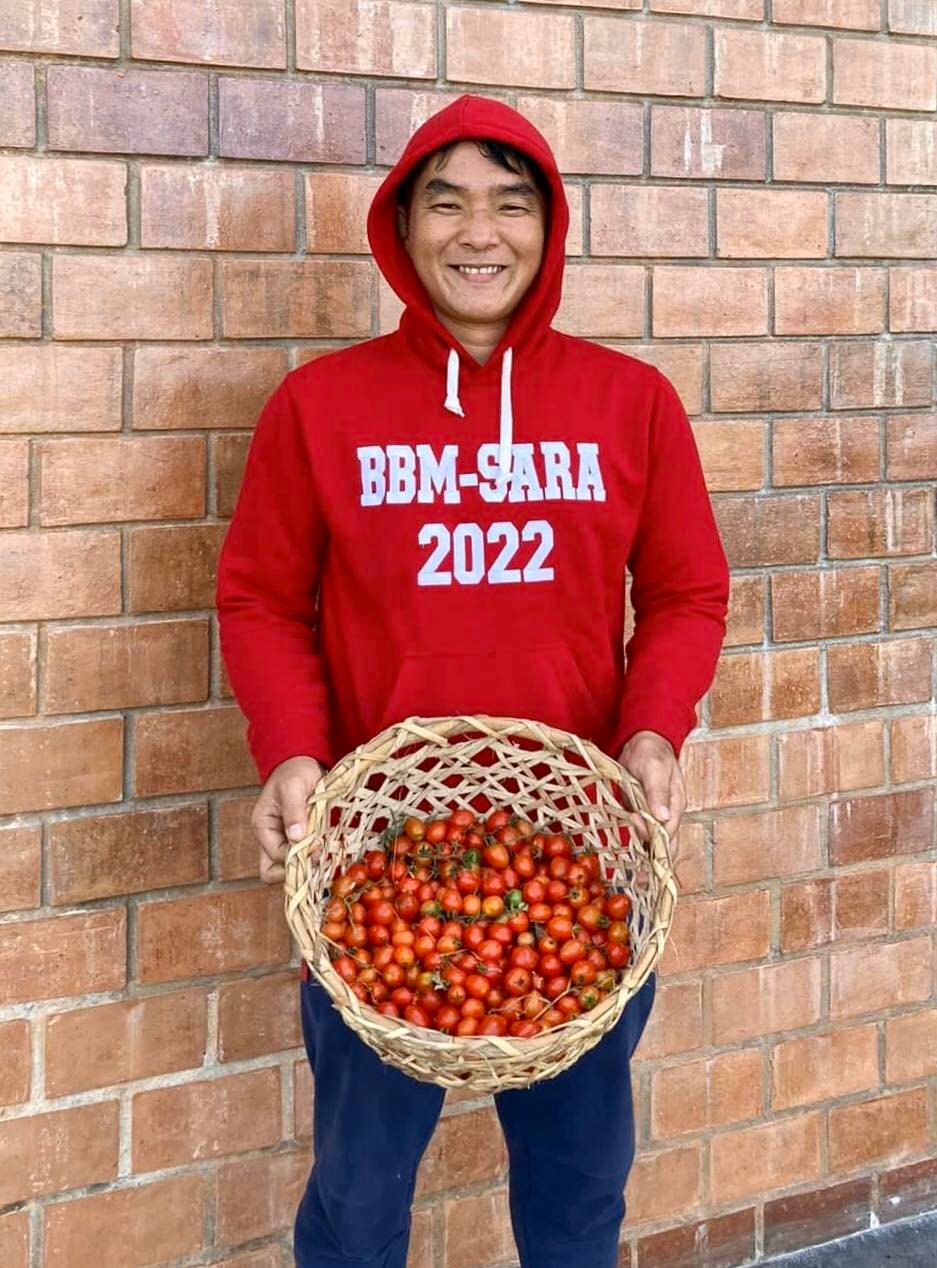
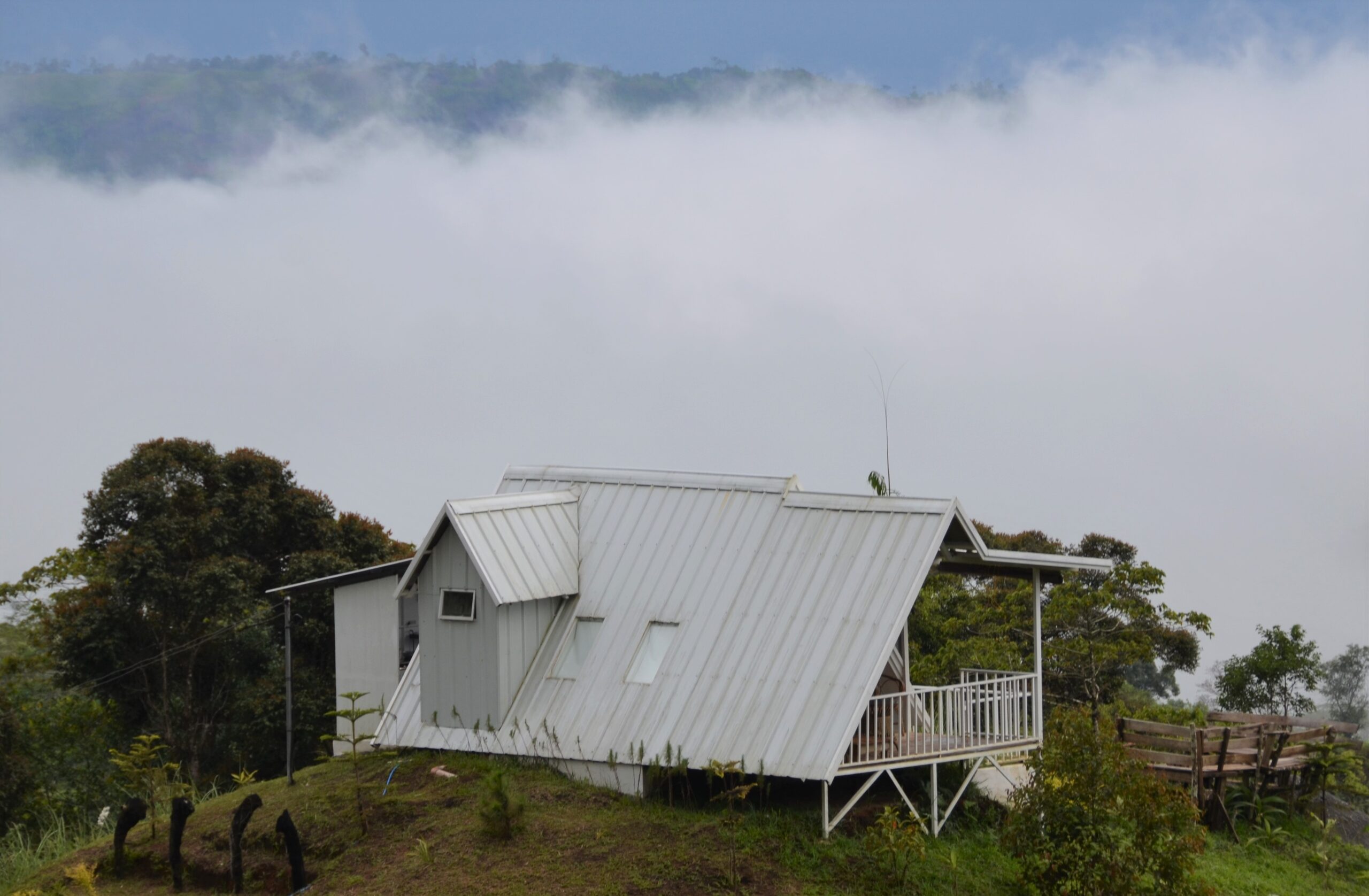
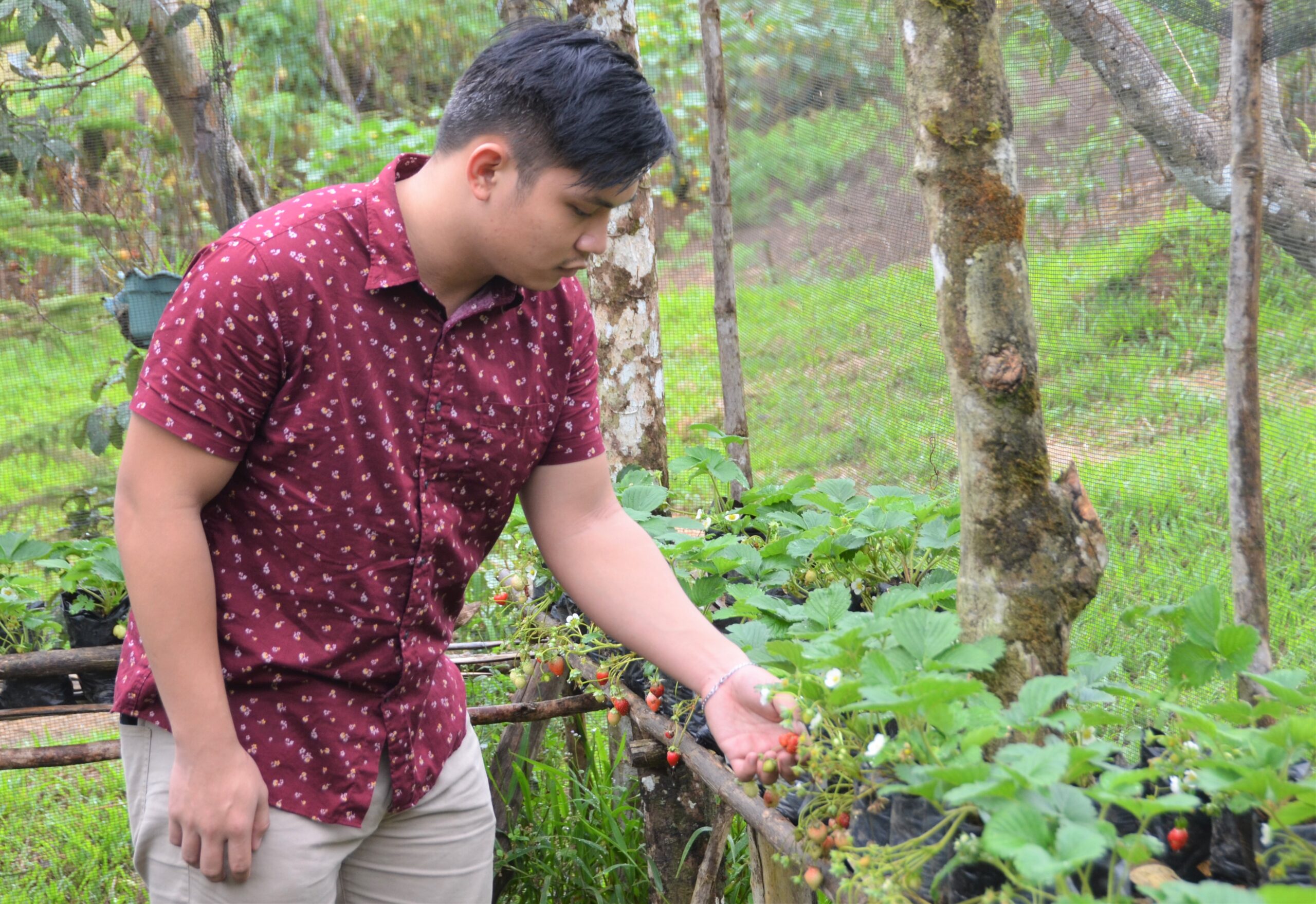
“Right now, we have various crops, so guests can do vegetable picking with their kids and bring it home,” he says. Of course, they have to pay for what they harvested, but it’s the bonding while harvesting that matters.
Guests who may opt not to cook their meals can always order food from Hungry Huntley’s Restaurant, which is just below the House in the Hill. The name came from the names of the two children: Edwald Hunter and Elda Huntley.
“As you have observed, our paintings are aimed to please the kids,” Atty. Legaspina says.
On the far end, there is a coffee shop-cum-bar, where parents can hang out and have some coffee or drink some wine and beers.
Atty. Legaspina wants to add five more cottages in the 4.5-hectare area. “We want to promote what Lorega can offer to people who come to this place,” he says. “We also want to promote tourism in the place because we have grown to love it.”
Basti – as Atty. Legaspina is known among his friends – has come a long, long way. After graduating from high school at the Assumption School of Davao, he went to Ateneo de Davao University (ADDU) and took philosophy.
After graduation, he decided to take up law. “Back then,” he says, “all I wanted was to help my family’s business but as it turned out, there are so many laws that you have to follow and comply with. That made me interested in hopefully becoming a lawyer someday.”
Another reason why he decided to become a lawyer was his “own curiosity in the intricacies and beauty of the profession.”
From his first to the third year, he studied at his alma mater, the ADDU. In his fourth year, he transferred to Cor Jesu College in Digos City. He graduated in 2005, took the bar in the same year – and passed!
When asked what would be his advice to those who want to pursue the law profession, he replies: “Study the law by heart but most importantly, make it a fun and enjoyable one.”
Most lawyers turn into farming when they get old. But Atty. Legaspina is different; even at a young age now, he has already starts farming. Thanks to his father, Dodie, who educated him about farming when he was still a little boy.
“He has a small patch of land somewhere in Marilog District,” he says. “When I was a kid, he would always bring me there. He taught me the basics, hardships, and simple happiness in farming.
“I found out that there are some values in farming that we can apply in real life,” he continues. “I also wish to impart those to my kids – to be happy farmers.”
Travel time by bus from Davao City to Lorega is about two hours. Just get down at the quarantine place in Lorega, where all passengers go down. Ask for directions from those selling some goodies. They will tell you where The Happy Farm is. It is about a kilometer away from the highway.

